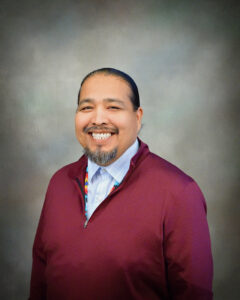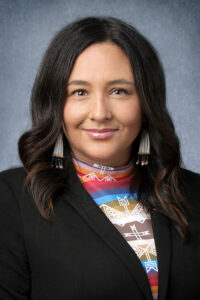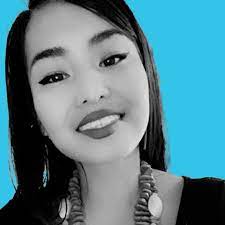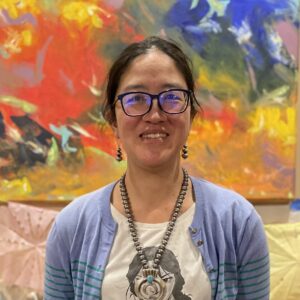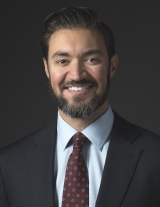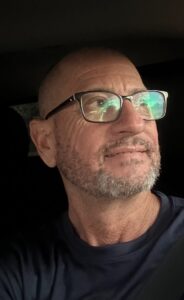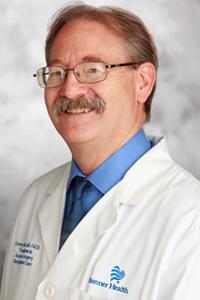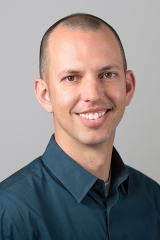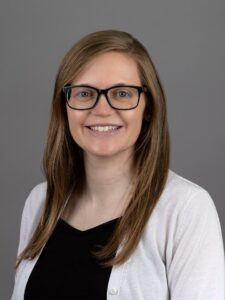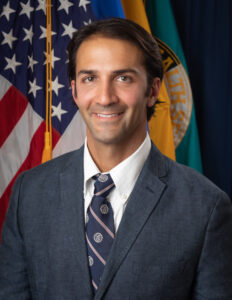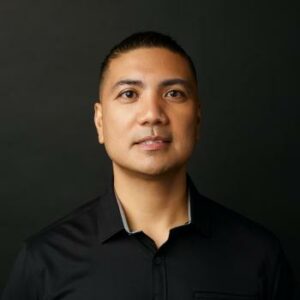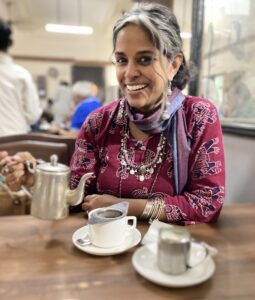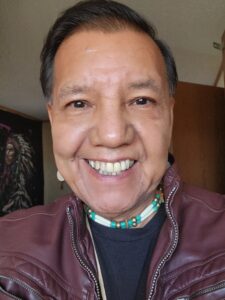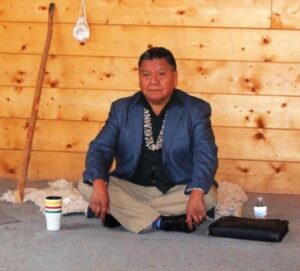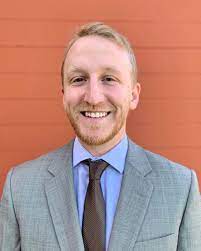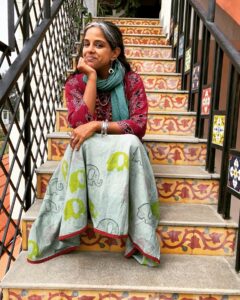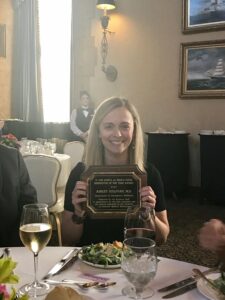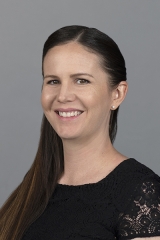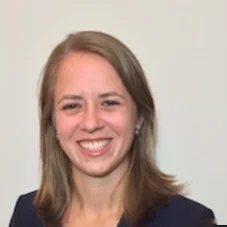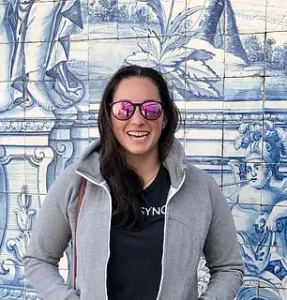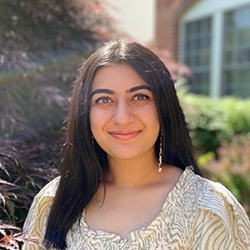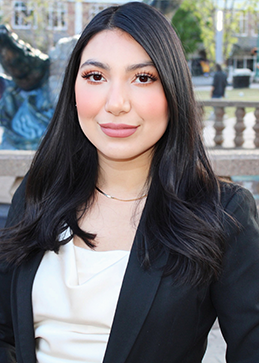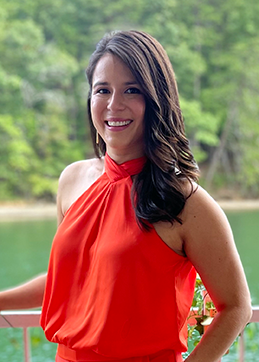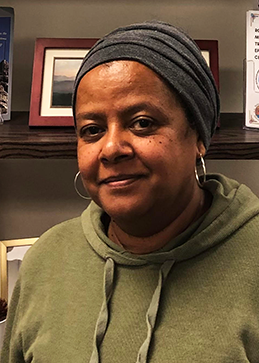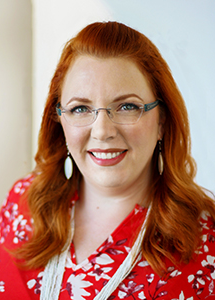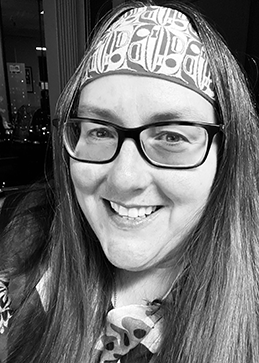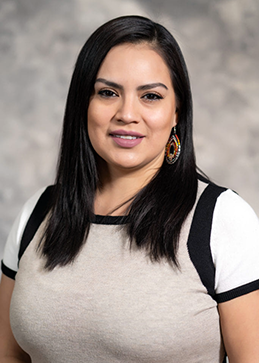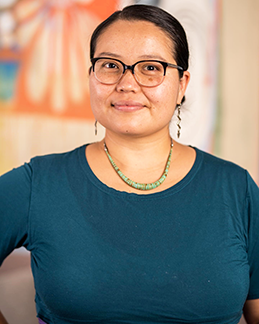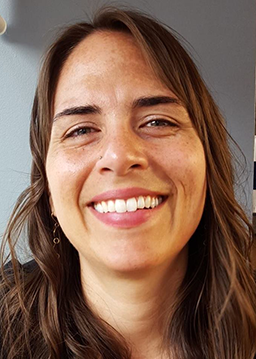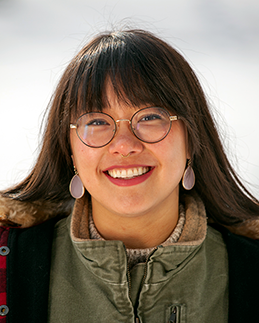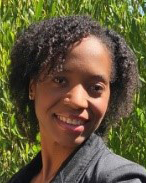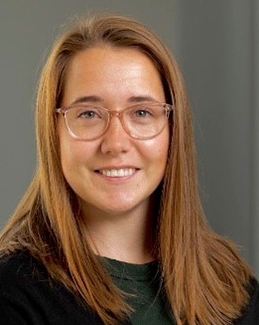Nurturing a Love for Fresh, Traditional Foods

The Quinault Indian Nation, located along the Washington coast, is effectively tackling diabetes, connecting people with traditional foods, and cultivating a healthier community through a garden-based wellness program that includes a free food pantry, cooking demonstrations, and multiple raised gardens.
In August 2020, Indian Country ECHO spoke on Zoom with Quinault’s Lead Gardener, Leah Paquette, and the Tribe’s WIC Coordinator, Claudia Peterson, to learn about their important work promoting healthy foods.
What started out in 2014 with just a few raised beds outside the Roger Saux Health Clinic has since grown into a multi-site program with extensive community engagement.
Today, in Taholah, WA, a town of about 800 people along the Pacific Coast, the Wellness Garden Program occupies 18 large garden beds bursting with seasonal fruits, veggies, herbs, and flowers. Raised beds allow elders or people with limited mobility to tend to them without having to lean over or get down on their hands and knees. Additionally, the Program has an urban farm called the Wellness Garden House, as well as gardens at Roger Saux Health Clinic that include a 1200 square foot in-ground garden for vegetables, 8 raised beds, and a young “food forest” consisting of fruit and nut trees, berries, herbs, and edible flowers.

The Wellness Garden Program is not only important for community health, but it also helps people have access to healthy foods. Leah Paquette, reflected: “Aside from seafood, our community is very much a food desert. Other than the convenience store in town, there are not any stores that sell real food for quite a distance. That’s in part why we started the Wellness Garden Program.”
This struggle is not uncommon in Indian Country. Native American households are four times more likely than other U.S. households to report not having enough to eat, and one study found that only about 25% of Native American living on tribal lands lived within one mile of a grocery store, compared to nearly 60% of the general population.
After initial successes in Taholah, the clinic launched additional community gardens, two of which are in Queets, WA, a smaller coastal town about an hour north of Taholah. Due to the pandemic, Paquette said “community members felt they needed to cultivate sustainable food sources closer to where they live, so they’re not having to travel an hour and a half to go to the store. That’s why we started the Queets Community Garden, as well as the Queets Seniors Garden.”
Helping tribal members maintain their health through nutritious foods is one of the reasons the clinic started a weekly food pantry that uses food from the gardens. They offer seasonal produce, traditional foods they’ve harvested, and eggs from their ducks and chickens. They also have an apothecary with tea and medicine made from traditional plants. Paquette noted that this has made traditional foods more accessible to community members: “We had a lot of people who wanted nettle, but it was really hard for them to get out in the woods. We can harvest [plants like this] for elders. That has been a major benefit to our community.”

Paquette also noted that distributing items throughout Quinault can make utilizing traditional plants less intimidating. “There are a lot of people who are not necessarily ready to change their entire diet, but they will drink nettle tea, which will bring a lot of nutrients into their diet,” she noted.
Prior to the pandemic, the garden team held demonstrations during the weekly food pantry, where they would regularly serve 15+ families. For example, they have shared how to cook sunchokes, a local root vegetable, how to make fireweed jelly, and how to make medicinal oil with willow bark, which can be used as a pain reliever.
The food pantry has proven to be an important tool in the community, and the number of families utilizing it has doubled since the pandemic. “Our clinicians often refer clients to our produce handouts,” Peterson told us. “We try to highlight some of the things that are available, especially if they’re having trouble affording food.”
Since the program’s onset, connecting youth with healthier foods has been a focus. Prior to the pandemic, the program hosted weekly garden classes with middle school students, where they taught students how to start seeds, make their own planting mixes, and create teas out of traditional plants like nettle or fireweed. The local Head Start program also has several raised beds in Taholah, where students have benefited from strong parent involvement in gardening.

What’s clear is that community support has been key to the program’s success. “Having champions of the program has been very helpful,” said Peterson. “People who openly support our program and who brag about it to the community. We have seen parents advocating for the gardens at the Head Start program, and we started a Facebook group which gets a lot of people to come in. Posting pictures of veggies and herbs, edible flowers, and the ducks and baby chicks helps make people more aware that we are here and creates an interest. People come by and say, ‘I’ve never been here, but I heard you have dandelion greens… how does this work?”
For providers seeking to enhance their treatment and care for diabetes, consider joining Indian Country ECHO’s Diabetes TeleECHO Clinics, where you can connect with a community of clinicians learning from champion providers and from peers through case presentations and brief didactics. You will also hear about community best practices for addressing diabetes from a wellness perspective, like that being taken by the Quinault Wellness Garden staff and clinicians.
